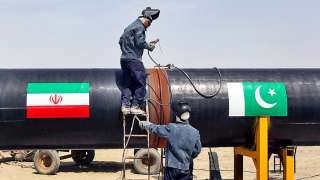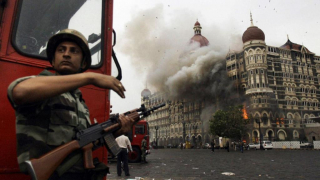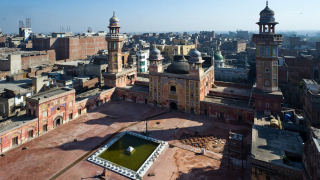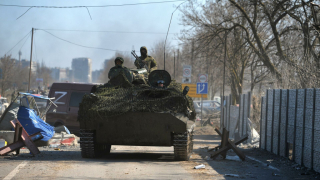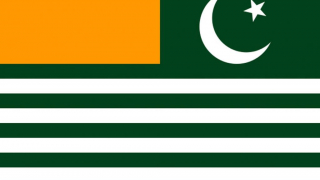Challenges to New Democratic Government in Pakistan
Western media has painted that Pakistan is a politically unstable and fragile country because it is a reality that Pakistan has remained the victim of US-sponsored color revolutions and regime change practices as CIA has been installing military dictatorships time and again to achieve its geopolitical objectives in the region. Pakistan is one of the countries where the US converted progressive and reformist regime of Pakistan into fundamentalists with the help of Pentagon created Jihad’s dogma intended to harvest the crop of Islamic extremism and terrorism as history witnessed that CIA exported militancy and extremism from Pakistan to all over the world. It is also a truth that Pakistan was the most allied ally of the US but the double game of the US has persuaded Pakistan to align itself with the new rising superpowers; “China and Russia”, Pakistan’s closeness with these multipolar world order countries is repairing the regional indemnities dealt by unipolar world order led by the US.
Third consecutive peacefully transferred of power through ballot papers has strengthened the immature democratic structure which was derailed time and again by the US in past. People of Pakistan are very hopeful that continuity of democracy must fortify the state institutional arrangements for the betterment of poor masses. Hence it is the reason that the attainment of democratic maturity will create the balance of power between institutions as there is always a tussle for the power between institutions, political forces, and establishment. But unfortunately, the maturity of democracy is really unaffordable for an establishment so there is always a threat to attempt the wreck of this continuity. Although, despite the many chances military might did not interrupt democracy but it attempted to do best in installing a favorable government with the aim to lead from the behind.
Pakistan’s political resistance history reminds us that right-wing political parties are established by the deep state. While left-wing socialist rooted Pakistan’s People Party which has a long history of struggle against dictatorship considered anti-establishment party as left-wing scholars have an opinion that there are two parties; Pakistan People Party and establishment. It is also said that PPP is the mother of Pakistan’s democracy as its founder and the popular leader Zulfikar Ali Bhutto modernized democracy. The credit of the continuity of the democracy also goes to the PPP while it has given a Charter of Democracy (CoD) with the consultation of other mainstream political parties, especially Pakistan Muslim League Nawaz (PML-N). This is also one of the reasons that there is an allegation on both of these parties of gaining power in center one by one under the umbrella of “friendly opposition”.
Before the 9/11, the CIA installed military dictator Musharraf government by toppling elected government on the same pattern as it did with Bhutto’s government before the USSR invasion of Afghanistan. Political forces struggled a lot against Musharraf dictatorship. PPP’s leader and two-time elected Prime Minister Benazir Bhutto was assassinated like her father while fighting for the civil supremacy. PPP got success to restore democratic set-up after the sacrifice of leadership. As a result of this, after ten years of dictatorship PPP made its way to make a democratic government in 2008. First time in the history, this elected mandate completed its tenure and PPP handed over the power to the newly elected government of PML-N in 2013. Luckily despite the massive corruption scandals, PML-N got success to complete its term and announced general election on its due time.
General Election 2018; Change in Pakistan
General Election was held on 25th July under the tight security. Nearly 106 million registered voters stepped out to cast their ballot in all over Pakistan to choose the representatives of national and four provincial assemblies. The election result brought setbacks for major parties and its leaders. Ruling party, PML-N lost the majority and defeated desperately with the rise of Pakistan Tehreek-e- Insaf (PTI). PTI brought the concept of new Pakistan with the objective of the rule of law and corruption-free society. PTI got majority seats in national assembly. PML-N appeared as a second largest party while PPP secured the third position. The first time PTI made provincial government in Khyber Pakhtunkhwa after the election of 2013. After this five years tenure, now PTI has not only made government in federation but it also secured government in two provinces; Khyber Pakhtunkhwa and Punjab while in Balochistan it has joined a political alliance with Balochistan Awami Party (BAP).
Surprisingly, despite the 2nd majority party PML-N has also lost the rule of Punjab. Although, it secured more seats than PTI in Punjab province but it did not make government. After a long time, the throne of biggest province Punjab was snatched from Punjabi party, PML-N by PTI. Interestingly, the third party, PPP got the majority in Sindh province and made a single party government in Sindh Assembly. Beside this, PPP is still a kingmaker in Pakistani politics. Both rival parties PTI and PML-N need the support of PPP to run state affairs. PPP’s young leader Bilawal Bhutto vowed to do strong opposition against treasury benches.
During the election of the premiership in the lower house, PPP decided to abstain. Its members of national assembly did not cast vote. National Assembly elected Chairman PTI, Imran Khan as the 22nd Prime Minister of Pakistan by gaining 176 votes while the president of PML-N Shahbaz Sharif only 96 votes. Imran Khan after becoming the Prime Minister only talked about election rigging in his first speech in the national assembly. He attempted to give justification that election of 2018 was not rigged and he came in power without the support of the military establishment. Opposition parties demanded to investigate massive rigging in the election. The chairman of PPP, Bilawal Bhutto amazed Pakistan by his first speech on the national assembly. He did not only prove himself as a young but mature leader. He was the only leader who saved a country from political turmoil after massive rigging in an election as most parties announced not to take an oath but he convinced all parties to come in assembly and to raise their voices on the floor of national assembly rather than protest and lockdown of the country.
Khan; the new Prime Minister of Pakistan
The cricket-icon Imran Khan secured the throne of the Islamic Republic of Pakistan as he was elected Prime Minister. He came in politics 22 years ago after the retirement of cricket. Being the Capitan, he secured the win for Pakistan in the world cup of 1992, which made Khan a hero of Pakistan. He established his party Pakistan Tehreek –e- Insaf with the aim to struggle for rule of law and social justice. He was no such political background but today his great effort brought him into power as his party is not only ruling over federation but his party is in government three out of four provinces in Pakistan. While the military establishment which considers shadow government of Pakistan also supported Khan. Therefore opposition parties called Khan the blued-eye of an establishment.
Although Khan considers political immature and his first speech after the victory was very impressive. Lack of good governance is a big problem. Khan as an opposition leader criticized the government for bad governance. He announced to restore relations with traditional rival India. He also hinted that Pakistan will act as a mediator between Saudi Arabia and Iran. A rapidly systematic change in the region already poses great challenges to Pakistan’s economy and its international relations. Pakistan’s economy is already the victim of trade war while unipolar Monterey system runs country’s economy directly. Unfortunately, its national currency pigged up with the dollar. Therefore Pakistan’s business surplus is in the dollar. It is very difficult for Pakistan to trade in national currency with multipolar world nations who have trended de-dollarization by strengthening national currencies. In this scenario, it is really very difficult for Khan to repair Pakistan’s economy. Being the part of polycentric world order, Pakistan has to take a bold decision.
After the end of military dictatorship in 2008, the government of PPP has changed the course of country’s traditional foreign policy as it attempted to align Pakistan with the emerging world powers; Russia and China on the principle of regional policy introduced by the anti-imperialist Zulfikar Ali Bhutto. With the aim to join Russia’s greater Eurasian strategy, Pakistan applied for the membership of Eurasian Security alliance, Shanghai Cooperation Organization (SCO) which considered an alternative to the Atlantic Council’s NATO. Luckily, after the PPP government, PML-N also continued the regional policy. Now the third democratic government of PTI is leading Pakistan. There are many conspiracies about Khan’s Zionist links as he was the son of law of Zionist goldsmith family and his only declared kids were also reared by Zionists. Some reports suggested that after Khan’s victory, his Jewish brother in law, Ben Goldsmith is very active to influence Pakistan’s energy policy.
Being the part of Pipelinestan, imperial energy battlefield also can be observed in Pakistan as 9/11 was staged to take control of Afghanistan which provides a land route to export Caspian Sea energy to the south and Southeast Asia. We witnessed that war from Afghanistan brought into Pakistan and we are still struggling to eliminate terrorism, extremism and separation movements. All are funded and fueled by the imperial power of centers. There are two purposed pipelines which have to cross Pakistan. On the influence of Saudi Arabia, the previous government of PML-N stopped the work on Iran gas pipeline which was started in PPP government. Caspian Sea energy pipeline Turkmenistan-Afghanistan-Pakistan-India (TAPI) was also signed under the influence of NATO. NATO wished to get security contract of TAPI as it installed a new enemy of regional integration in the shape of Islamic State (ISIS). Beside this NATO/US also attempted to acquire Turkmen Mary airbase for the protection of Turkmengas field “Galkynysh” which considers the world’s second-largest energy reserve having 21.2 trillion cubic meters of gas.
Therefore Pakistan is under a microscope by the imperial power centers of the west. Political change in Pakistan matters for big powers of the world. After the Russian plan to construct Eurasian energy grids in Pakistan along the China-Pakistan Economic, Western powers are doing efforts to influence Pakistan’s energy policy and its international relations. While regional power centers; Moscow, Beijing, and Tehran were aware of it. Therefore experts from these countries called that TAPI is a regional trap under NATO. While in another side, Central Asian security alliance, Collective Security Treaty Organization (CSTO) is ready to protect TAPI for the betterment of the region. This is the main reason for the establishment of a common security mechanism under the Caspian Sea convention with the aim to keep western influence away from the regional integration.
Conclusion
In this described scenario, political change in Pakistan is very significant as Pakistan is the main player in the region. Once Pakistan was the allied ally of the USA but the continuity of political democratic set-up persuaded Pakistan to prefer regionalism rather than acting as the pawn of western powers. Pakistan has already stood up against American ‘please-punch’ approach by refusing ‘do more’ on American call against the region. This total shift came in Pakistan under democracy because democratic forces are questionable for their actions in the public institution of Parliament. While Pakistan’s history witnessed that American sponsored dictatorship brought chaos and political unrest into Pakistan. Truly speaking, Bangladesh was separated under dictatorship and the Pentagon’s jihad dogma also introduced by dictatorship while NATO and US-led ISAF forces also came to Afghanistan by CIA supported military regime.
Although, it is the USA who brought turned world democracy in its favor as it has installed its puppet regimes in more than 80 countries but Pakistan’s situation is different. Sub-continent was divided into Pakistan and India by democratic forces but the CIA attempted to weaken Pakistan’s democracy by installing military coups. Therefore, there is always a threat of military dictatorship in Pakistan. Hence it is the reason that despite the concerns over rigging in an election, political forces accepted the results and went to parliament for the sake of democracy. Indeed, Pakistan’s democracy is gaining maturity as history observed the third continuous peaceful shift of power through ballot papers. Mighty military establishment openly supported Khan as during election campaign Khan publicly said that international establishment is working to defeat him. He campaigned that his victory is necessary to defeat international powers.
Available facts pointed that it was only a political stunt of Khan because Khan was benefited by the Panama Paper scandal which was brought by the international establishment as the part of regime change in targeted countries including Russia and China. Global manipulator George Soros’s owned organization and American State Department played their role to bring out the off-shore companies of world leaders and politicians. I am not favoring the corruption of former Prime Minister Nawaz Sharif. His countless corruption fixed him in the court of law. But here, it is an effort to understand the international establishment because this is also the reality that international establishment also has great influence over elections in everywhere in the world. Beside this, liberals of Pakistan opposed Khan and supported openly to Nawaz.
The passage of time will bring truth on the surface about the rigging of election. Despite with all “ifs and buts” the reality is that the process of formation of the government has been completed in the federation and in all four provinces. Now all political forces have to join hands to protect this newly elected democratic set-up. What’s ever its happened with the election but political parties have to give a chance to complete legal tenure of given mandate so that this government has to rule the country for five years to discourage non-democratic actors. Strong opposition is better to run the government but on the name of opposition, blackmailing would be disheartened.





